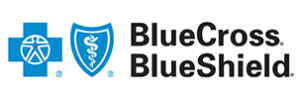Warner Park Recovery Center – Woodland Hills Mental Health







When you’re ready to get help for a deeply-rooted personal condition, such as addiction, a mental disorder, or a dysfunctional relationship, it’s important to understand that not all people respond to treatment the same way. Your psychological conditioning, brain chemistry, medical history, family dynamic, and interpersonal relationships all play a part in determining the best way to address your unique issues. As you consider your options, take the time to make sure you’re aware of the different modalities your treatment center can offer. Below are some of the most common and effective methods for treating mental disorders, addiction, and recurring psychological conditions.
Cognitive behavioral therapy, or CBT, is a form of psychotherapy which aims to teach you how to self-regulate your thoughts and feelings. The main goal of CBT is to allow you to fully experience and acknowledge intense, potentially destructive emotions, without allowing them to control your behavior. This includes regular counseling with a therapist who will work with you to develop the emotional skills and self-awareness you’ll need to make healthier decisions in the future. CBT can also be combined with prescribed medication for some mood or personality disorders; this combination has shown to be especially effective when treating post traumatic stress disorder(PTSD), substance dependency, and borderline personality disorder.
Dialectical behavior therapy, or DBT, is a form of therapy which developed from CBT as a means to treat those struggling with personality disorders and mood problems. DBT combines a number of exercises and goals to promote overall mental stability, with an added focus on self-acceptance and distress tolerance. This approach helps you focus on creating effective paths for yourself to be able to change destructive behaviors to more positive ones and gives you the tools to attain crucial mindfulness. DBT can be used to treat a wide variety of conditions and has been found particularly useful in treating mood disorders, substance abuse, eating disorders, and self-harm.
Solution-Based or Solution-Focused Therapy is an approach to treating any mental condition that emphasizes working towards your future goals instead of attempting to “fix” or “correct” your past. It can be all too easy to get stuck in a loop of obsessing over the guilt, shame, remorse, and anguish you feel towards the mistakes you’ve made in the past, especially if you’re trying to overcome addiction or a personality disorder that led you to engage in destructive behavior and damage your relationships with others. A solution-based approach can help you to break out of the unhelpful hamster-wheel mentality and focus on what you can do to make your life better, starting today.
Solution-based treatment can be helpful in treating all forms of conditions, from addiction to mental illness. It can be combined with internal tools for self-regulation, like CBT or DBT, and will almost always take the form of working with a therapist to develop a structured plan for achieving your future goals. An important part of solution-based treatment is making sure that you’re held accountable to the goals and path you establish for yourself. This makes it especially necessary to maintain regular, honest contact with your sponsor, therapist, peers, and anyone else who is helping you through your recovery.
For some patients, family can play a critical role in both the exacerbation and the improvement of your condition. Combined with societal stigma and a general lack of thorough education, problems like mood and personality disorders, addiction, and dual diagnoses can be easily misunderstood by your loved ones, especially when the intense emotions of long-lasting relationships come into play. This can make it harder for them to help you and sometimes lead them to inadvertently make your condition worse.
Family therapy involves seeing a counselor alongside your close family members or the people you live with in order to promote understanding, open communication, and productive behavior going forward by all parties. If your family can help to create a positive, supportive environment for your recovery, you’ll be able to make much more consistent progress than if you have to compromise your progress by dealing with negative influences or input from the people around you.
Family groups are an ancillary component of treatment, specifically for a client’s close relatives and loved ones. Many treatment centers offer group meetings for families of those struggling with addiction or mental disorders. Just like it can be enormously helpful to you to connect with peers in recovery who understand what you’re going through, it can make a huge difference to your family to be able to share and learn with the family members of other people in a similar position. As you move through your own journey of recovery, your loved ones can learn how to best support you, how to see past the stigmas and shame they might be experiencing, and how to work with you to mend the damage your condition may have caused in your family relationships.
Based on your test results we are sending you this notification in order to better assist you. Please feel free to reach out with no strings attached and speak with one of our live representatives today.